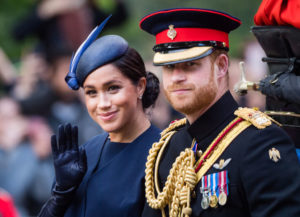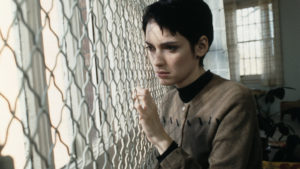If you’re a female celebrity memoirist — and especially if you happen to be white, hot, blonde, and possessed of a net worth in the tens of millions — you are expected to make a privilege disclaimer: to marinate in identity-based guilt right there on the page. Apologetic passages are so ubiquitous in women’s narrative nonfiction that it’s easy to skim right past them. So, I was several chapters into Paris Hilton’s new memoir before I realised what was peculiar about it.
It wasn’t the mercurial, ADHD-fuelled writing style, which somehow still manages to tease a bright narrative line out of the chaos. It wasn’t the harrowing details of the two years the author spent in the notorious Nineties CEDU boarding school system for troubled teens. It’s that the book is trend-buckingly unapologetic. There is no privilege-acknowledging. There is no self-flagellating liberal guilt. There is one trigger warning, but in context it functions more like a titillating anticipatory pause than a chance to avoid upsetting content. After all, what reader of Paris: The Memoir is going to set the book aside just when she’s getting to the juiciest part of her traumatic origin story?
It’s hard to overstate how unusual this is. It’s got to the point when writers insert privilege disclaimers reflexively, including in contexts where they don’t make sense and aren’t even necessarily true. (“My house burned down and somebody murdered my cat — but as a cis, straight, able-bodied white woman, I’ll never know what it means to really suffer.”) I understand why people do this, of course; if you don’t call out your own privilege, you run the risk of someone far more unhinged and vindictive doing it for you. I just didn’t realise how refreshing it would be for a writer to just… not.
In the few places in the book where the word does appear, it tends to have a very different meaning. In the CEDU facilities where Paris was confined for two years in her teens, it was a “privilege” to contact your family, to wear shoes, to sleep on a bed instead of a bare mattress in the hallway. Said privileges would be revoked for violations of the facility’s rules, which were both so numerous and so intentionally self-contradictory that it was impossible not to break them. In short, the abuse that occurred at these places, which multiple lawsuits have alleged functioned more like private prisons than schools, is nothing short of horrific — residents were forcibly medicated, ritualistically humiliated in group struggle sessions, beaten and sexually assaulted, stripped naked and left in solitary confinement for up to 20 hours at a time. And the teens destined for them were the last to know what was happening: standard intake protocol was for members of the CEDU security team to snatch them out of bed in the middle of the night.
Since 2020, when she first shared this story in the documentary This Is Paris, Hilton has been part of a survivors’ movement that calls for CEDU facilities to be shut down. The sections of her memoir detailing her treatment there read like equal parts exposé and survival thriller. But here, too, the book takes an unexpected turn. Paris Hilton isn’t sorry for her privilege, but she isn’t sorry for herself, either. In a world where so much cultural currency resides in narratives of victimisation and oppression, she chooses again to just… not.
This is striking, juxtaposed with another recent memoir by a certain individual born into breathtaking wealth and status. Consider Paris’s tone when reflecting on how her time at Provo, Utah’s CEDU facility, left her not only traumatised, but completely lacking the education of a normal person her age:
This whole shit storm had stolen two years from me, and that’s like—what is that? Like 10 percent of my life at the time? No! More like 20 percent, isn’t it? Because, like, two years would be a fifth of your life if you’re twenty, and I was only eighteen, so—ugh. Forget it. I can’t do math. Math got robbed from me, along with geography, algebra, socialisation, healthy flirtation, how to conduct my body and value my soul.
Now compare it with Prince Harry, bewailing that he’d been cut off financially by his father at the tender age of 34:
Cutting me off therefore meant firing me, without redundancy pay, and casting me into the void after a lifetime of service. More, after a lifetime of rendering me otherwise unemployable. I felt fatted for the slaughter. Suckled like a veal calf.
Both passages embody a peculiar type of celebrity: fame was guaranteed long before they did anything attention-worthy in their own right. Both were notoriously troubled teens who responded to the pressures of a privileged upbringing by rebelling, often as publicly and messily as possible, secure in the knowledge that they were too well-protected to be left with nothing. Both, too, experienced genuine trauma in their lives, the pain of which no amount of money could soften.
And yet, if someone had said 10 years ago that only one of these people would ultimately build a multimillion-dollar brand on the foundation of his or her victimhood — and make a spectacle of renouncing his or her famous family while continuing to capitalise on it at every turn — who’d have guessed it would be the Prince?
Perhaps we might disagree on who has the greater claim to family grievance: the motherless royal who chose to renounce his role in the family, and wound up renounced by them in return; or the heiress whose complicated relationship with the parents who sent her away doesn’t stop her from citing the family name among her list of assets. (It is worth noting here that Harry, though he has made headlines by acknowledging his white male privilege, always somehow seems to avoid mentioning the part where being born royal and astronomically wealthy was surely a greater advantage. He also has the word “PRINCE” emblazoned on its cover in an exceptionally large font.) But the difference is one of degree, not of kind.
The difference in their attitudes, meanwhile, is vast. After returning to her parents’ home from the lockdown facility, a 19-year-old Paris stays up at night, unable to sleep in the room from which she was abducted at the age of 16, listing “ways to make money and leverage the assets no one could take from me: my face, my name, my legs, modelling contacts, and experience on the runway — none of which would mean anything if I wasn’t willing to work hard”. Harry, a married father in his thirties, also stays up at night — raging at the injustice of having to navigate the adult world, for which he is woefully unprepared in a way that neither the press nor his family seem to appreciate. He laments having been cruelly robbed, by his royal upbringing, of formative experiences such as carrying cash, riding the subway, or (yes, really) receiving boxes from Amazon: “After decades of being rigorously and systematically infantilised, I was now abruptly abandoned, and mocked for being immature?”
The two approaches make for a study in what each author evidently perceives as his or her most winning public relations strategy. Harry’s brand is a sob story, wrapped in a privilege acknowledgment, stuffed into Oprah’s mailbox. He is undiscerning in the details he shares. Paris’s is a more carefully choreographed airing of dirty laundry, offering front-row seats for the press. Unlike Harry, Paris is under no illusions as to the symbiotic nature of the relationship between herself and the media. They exploit her, but she exploits them, too, often beating them at their own game. As harrowing as the boarding school stories are, the more radical — and revealing — part of this memoir is the frankness with which she describes a lifetime of living in front of the cameras, for better and for worse.
Her humanity, the real person behind the public figure, comes through in unexpected flashes, as when she describes putting her own body between a mini-dress-wearing Britney Spears and the hovering paparazzi as the pop star climbed into a car, shielding her in the vulnerable moment when a photographer might have captured an upskirt shot. But what also comes through is how savvy Hilton has always been about how much she controls the narrative when it comes to her family’s public face — how much she is its public face.
When her parents come to visit her at the Provo boarding school just a few weeks shy of her 18th birthday, she hisses a promise in her father’s ear: if he makes her stay at the facility until she’s reached legal adulthood, her first stop after they let her out will be the offices of the Wall Street Journal, where she’ll tell the press exactly what they’ve been doing to her — what her parents paid them to do. After years of refusing to believe their daughter when she said she was being abused at Provo, what does it say about the Hiltons that this was the one utterance they took seriously? (Paris was released shortly thereafter.) And what does it say about Paris that, despite her threat — and despite the obvious cachet of having been so sensationally mistreated — it took decades before she made this story public?
I came of age at the same time as Paris Hilton — she is almost exactly one year older than me — and it’s tempting, having read this memoir, to indulge in a little self-flagellation of my own. I remember laughing along with everyone else when Sarah Silverman, at the 2007 MTV Movie Awards, joked with gleeful malice about Hilton’s upcoming stint in jail. I remember rolling my eyes at The Simple Life, the reality TV show that featured Paris and Nicole Richie struggling their way through menial, low-paying jobs as janitors, farmhands, camp counsellors. Of course, there was no way of knowing at the time how much of The Simple Life was pure performance (apart from the strip searches and struggle sessions, Provo’s preferred method of character-building was to make the residents haul rocks), or that Paris’s widely-mocked breakdown over being sentenced to jail stemmed from genuine PTSD. But the mix of sneering contempt and total incuriosity with which she was treated: that was a choice.
It seems incredible that the media hasn’t jumped at the chance to recontextualise what they did to Paris Hilton in the same way that they’ve done with Britney Spears — which is to say, to shamelessly march out all their most exploitative coverage for a documentary re-airing, under the nearly transparent pretence of repenting for their sins. And yet, the response to Paris’s latest offering has been, at best, only marginally less sneering than usual.
Maybe it’s because there never was a meltdown, or a breakdown, or a tearful sit down with Oprah that made Paris seem like a person it was possible to feel sorry for. Or maybe it’s just the same old cynicism: who is to say that this isn’t just another example of Hilton’s uncanny capacity for controlling the narrative, even as she appears to be making herself vulnerable? If a person is both incredibly calculating and also incredibly honest about it, does that make her more trustworthy, or less? When she forgives her parents for sending her away, is it because she really forgives them? Or has she simply concluded — as Prince Harry must have when he decided to christen his daughter a Princess — that her family is a greater asset to her than renouncing all its privileges could ever be?
Disclaimer
Some of the posts we share are controversial and we do not necessarily agree with them in the whole extend. Sometimes we agree with the content or part of it but we do not agree with the narration or language. Nevertheless we find them somehow interesting, valuable and/or informative or we share them, because we strongly believe in freedom of speech, free press and journalism. We strongly encourage you to have a critical approach to all the content, do your own research and analysis to build your own opinion.
We would be glad to have your feedback.
Source: UnHerd Read the original article here: https://unherd.com/




